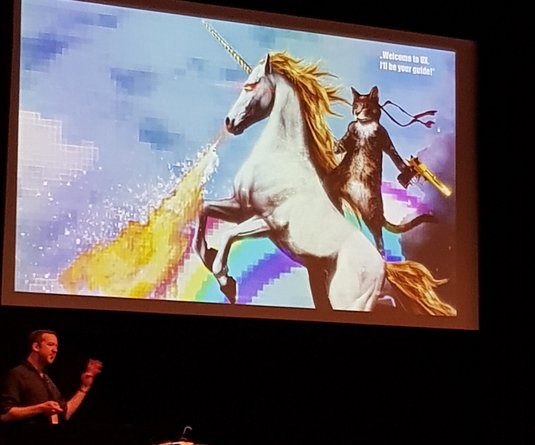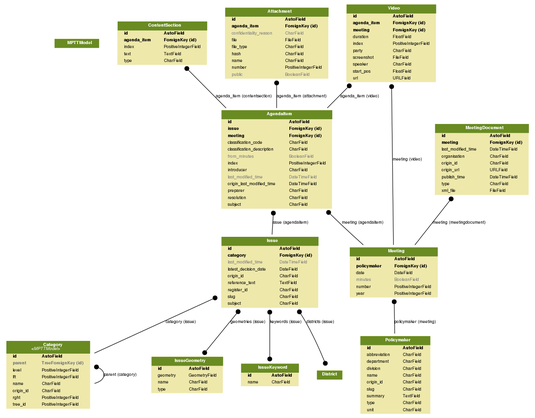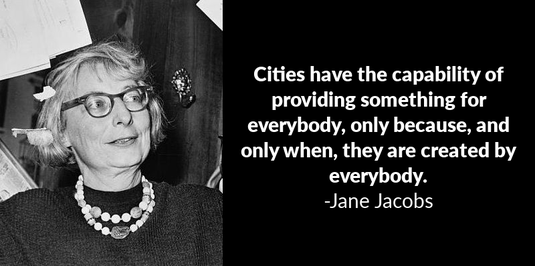Blog

Euro IA 2017 - Information Architecture and Design in Stockholm
Being a city coder entails much more than just hammering away at ready-made Github issues. On the contrary, it is increasingly becoming a process of service design, starting from trying to figure out basic service needs and expectations, and constantly and iteratively honing the service with the actual end users. Increasingly our end products are not code, but actually the Github issues that somebody else will end up coding and we will end up reviewing.
Therefore, trying to further our ...

Tracking dependency versions for vulnerabilities
Here in Open Software Group at City of Helsinki we have been tracking dependency updates of Python projects with requires.io for some time. But recently we decided to cover all of our projects, Node.js included. I set out to compare all the available services, and hopefully find a single solution that would:
- handle both Python and Node repositories
- automatically tracks all dependencies (even without new commits) and send email and slack notifications for updates when new versions or ...

Crowdsourcing for better infrastructure
Traditionally, city infrastructure planning has been a top-down business. From general guidelines drawn on a high political level, increasingly detailed plans have been made with little regard to local environment. Obviously, some level of general control and supervision of infrastructure is necessary, but it must be balanced with data on the physical reality, such as information on how the infrastructure is actually used, how it works in practice and what effects it has on the environment.
This latter part - the ...

What about documentation?
As most of us know, coding is a busy business. New ideas, feature requests, crucial hotfixes, standard bugfixes and a number of other issues pile up in addition to planned projects and sprints. Therefore, when developing an API for your own use, you are usually satisfied once you get it to work the way you want, and move on to the next pressing thing to do. After all, we are using our own API, why should we bother with systematic ...

Restful data
Well-formed Data at rest is as close to perfection in programming as it gets. All the crap that had to happen to put it there however..
Rufus Pollock from Open Knowledge Foundation visited our Helsinki ❤︎ Developers meeting during OKF’s MyData conference. He introduced us to the idea of frictionless data; making open data easier to discover, use and understand. Basically is a way to describe data using machine readable, yet lightweight and even human writable format based on ...

Plants and benches in Kontula – visualising participatory budgeting
Participatory budgeting is a form of direct democracy where citizens actually have a say in how part of the city budget is allocated. The total public budget cannot easily be allocated based on local preferences only - any budgeting decision usually needs considerable amounts of data and analysis to actually uphold the commitments the city has made to the communities and services that depend on it. However, on the lower level of budgeting - allocating funds between several competing projects or funds ...

Participatory democracy and what developers can do to help
Even after the birth of the civil society, there has been a considerable gap between established governmental bureaucracy and the needs of the average citizen. Even though democratic mechanisms are in place to elect and dismiss decision-makers at the local level, voting once every four years can hardly be considered a sufficient method of feedback between residents and the politicians making decisions on their immediate surroundings.
Some of these decisions may seem small, while others are more far-reaching. Regardless of ...

What Does Software Development Have to Do with City Government?
The City of Helsinki is Finland's biggest employer with about 40,000 employees. This is mostly due to the city's extensive services in the health care, social services, and schools. But how many code fellows does Helsinki employ?
Why should the city hire software developers and programmers? Is this really the core mission of a local governmental organization? Shouldn't the city direct its funds to more directly benefit the public and ...